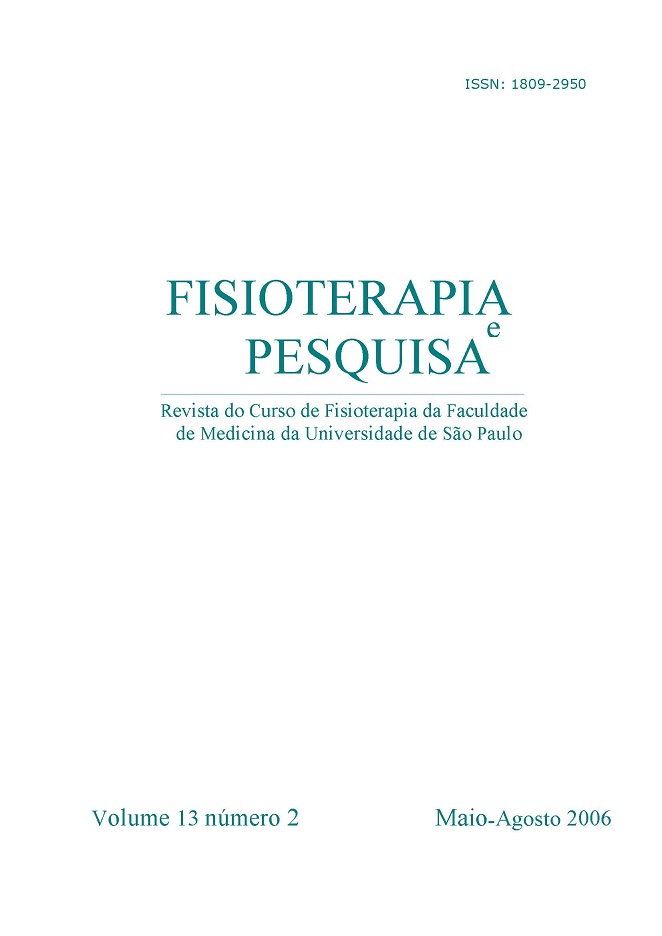Anthropometrical changes and motor skill in infants at the onset of independent walking
DOI:
https://doi.org/10.1590/fpusp.v13i2.76233Keywords:
body mass index, child development, gait.Abstract
Changes in infants’ body dimensions occurring during development may impose specific motor demands at the onset of independent walking. That is, anthropometric features may influence infants’ gross motor performance. This study aimed at assessing the association between weight, height, and body mass index (BMI) with motor performance of typically developing infants, comparing two groups of infants with different BMI values in regard to motor performance. Weight, height, and BMI measures of 10 infants were obtained during the week of onset of independent walking. Motor performance of all infants was assessed by the Alberta Infant Motor Scale (AIMS) one week later. Results show significant correlations between BMI and motor performance (r= -0.850; p=0,002) and between weight and motor performance (r= -0.701; p= 0.024). The correlation between height and motor performance was not significant (r= -0.495; p=0.145). The two groups of infants separated by the median value of the BMI distribution showed significant differences in gross motor performance (t=3.795; p=0.005), the group with higher BMI showing lower AIMS scores. These results suggest that anthropometric features are associated with gross motor performance in infants at early stages of independent walking.Downloads
Download data is not yet available.
Downloads
Issue
Section
Original Research
How to Cite
Anthropometrical changes and motor skill in infants at the onset of independent walking. (2006). Fisioterapia E Pesquisa, 13(2), 53-61. https://doi.org/10.1590/fpusp.v13i2.76233



